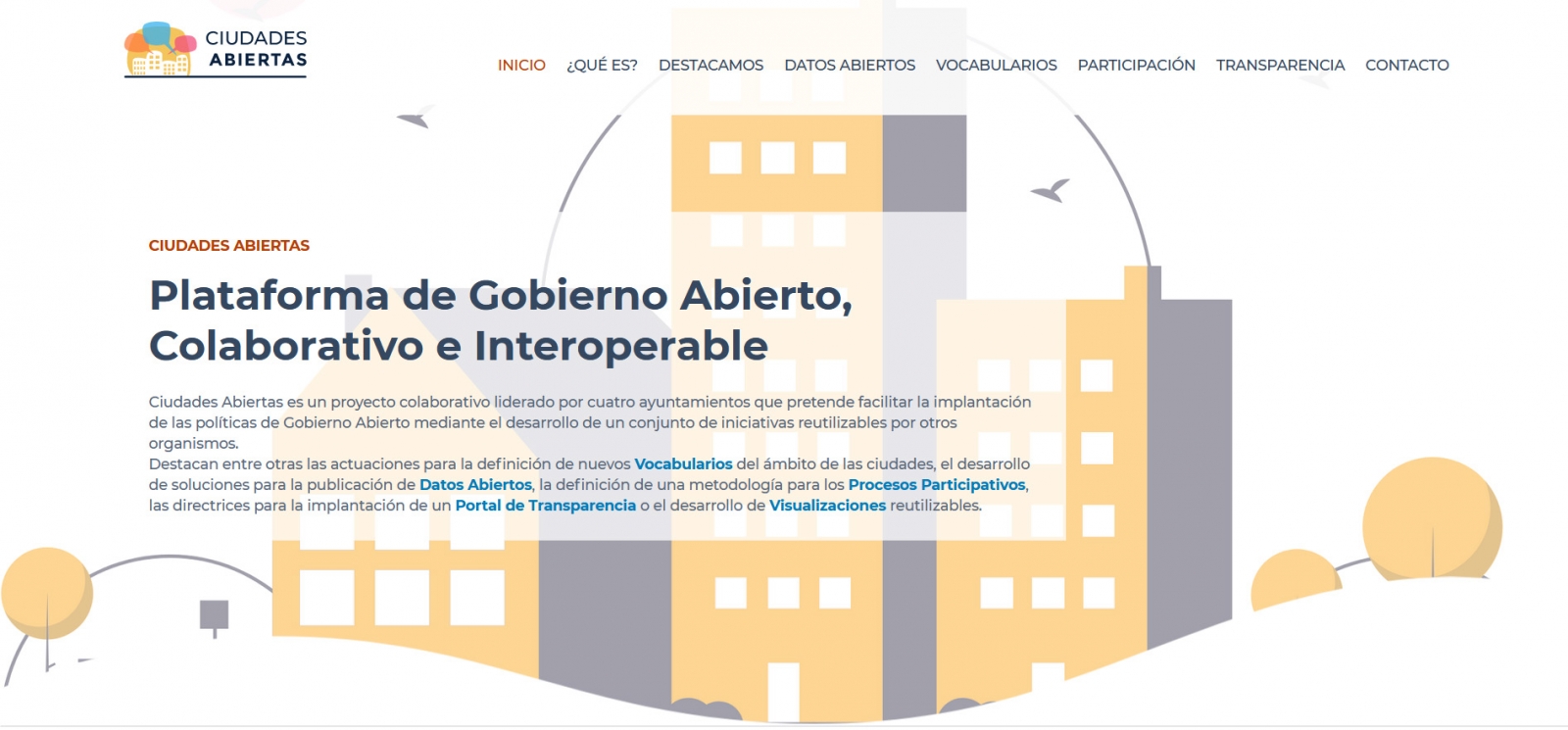
Making a city "smart" is not easy. According to the report Smart cities: understanding the challenges and opportunities, the budget constraints and the lack of infrastructure are the two main barriers for populations wanting to implement Smart cities initiatives. In this context, interoperability and collaborative platforms that allow the sharing of resources are key to success.
It was with this idea that the Ciudades Abiertas (Open Cities) project emerged 3 years ago, an open, collaborative and interoperable government platform, which was a beneficiary of the II Call for Smart Cities.

Collaboration between municipalities based on 4 lines of action
The Ciudades Abiertas project is led by Red.es and four city councils: A Coruña, Madrid, Santiago de Compostela and Zaragoza. Together, these city councils are developing various initiatives that can be reused by other bodies.
Recently, Ciudades Abiertas has updated its website, incorporating a new design, a highlights section with the latest news of the project and additional functionalities such as execution indicators.
The actions have been developed around 4 pillars:
- Open data: Open data is the most critical requirement of Smart Cities, as the above-mentioned study rightly pointed out. In this sense, the Open Cities project provides the technical and conceptual means necessary for the "management of unique shared data, open by default, georeferenced and semantically annotated by the city". Work is currently underway on the publication of a generic data REST API - or the development of a SPARQL access point to perform complex queries on several datasets at once, among other actions.
- Vocabulariums: The platform offers a catalogue of common and open vocabularies and data structures on Github for use by participating municipalities or any other entity. You can already access the vocabularies on the Municipal Agenda, Population Register or Public Bicycle, the last one to be incorporated in April of this year. They are currently working on other vocabularies such as Traffic or Budget and Budgetary Execution. Within this framework, a couple of videos have also been created to inform about what the vocabularies are and how they are generated and to raise awareness about the advantages of their use, in a simple and didactic way.
- Participation: The project seeks to promote citizen participation in several of the legislative, implementation and control activities carried out by the municipalities, in areas such as participatory budgets or day-to-day management. To this end, a methodology has been developed and two catalogues are provided, one of participatory processes and the other of instruments for participation. A list has also been included with specific examples of participatory processes that can be taken as a reference when setting up an initiative of this type.
- Transparency: Accountability is also a fundamental area of Smart Cities, so mechanisms are needed to ensure that all activities carried out by the council are provided with full transparency. One way to provide this information is through simple visualizations, easy to understand by citizens without technical knowledge. The project explores different ways to facilitate these visualisations. Two interesting reports have been prepared: Report with the Analysis of External Visualisation Systems and the Report with the Analysis of Visualisation Extensions for CKAN.
Next steps
The Open Cities project is still in full development. Among the activities to be developed in the coming months is the definition of new vocabularies until completing those recommended by the UNE 178301:2015 standard, or the creation of a general scorecard that allows comparisons of all the transparency indicators between cities, thanks to the homogenization of the data and its availability in reusable formats. They are also working, through collaborative workshops with citizens, on the design of visualizations that allow to offer information on transparency in an interactive way and with a simple language.
All these actions will facilitate the creation of new Smart Cities projects not only in these cities but in various territories throughout the country.